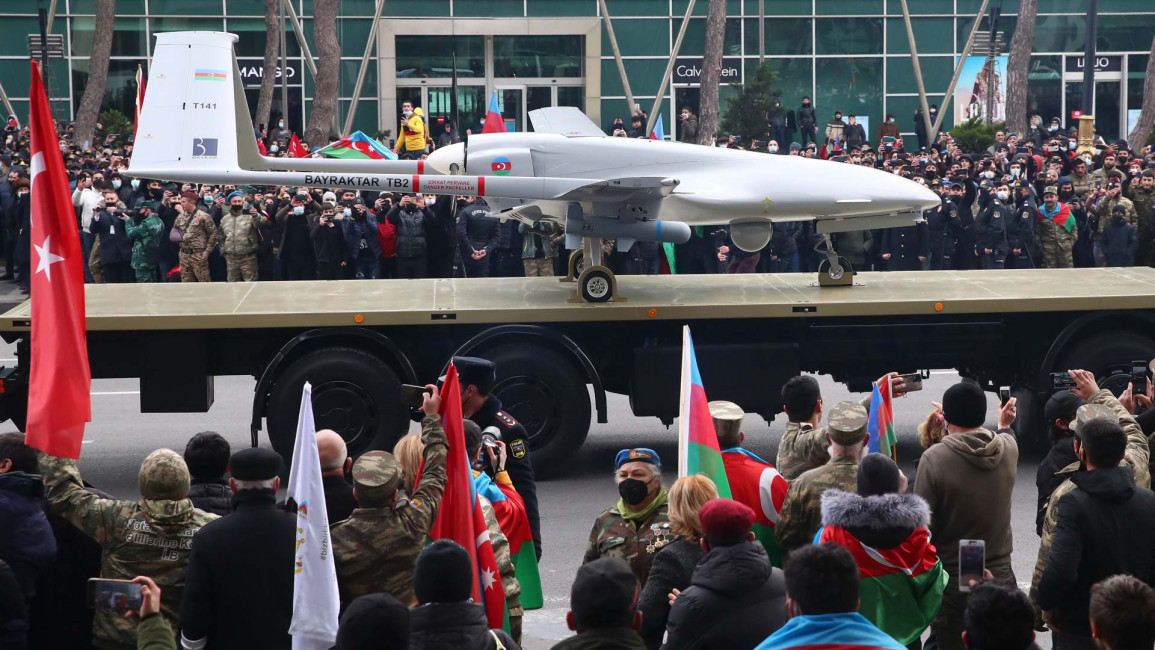UK company nixes exports to Turkey over Nagorno-Karabakh drone use
UK company nixes exports to Turkey over Nagorno-Karabakh drone use
A number of Western companies have been pressured not to supply parts to Turkish drone giant Baykar.
2 min read
Canada suspended arms exports to Turkey over the drones' use in Nagorno-Karabakh [Getty]
A British aerospace company has cut exports to Turkish drone giant Baykar over the use of the firm's drones in the Nagorno-Karabakh conflict.
Andair Ltd said in a statement this week that it would no longer supply parts to Baykar after it discovered that claims Bakyar drones - which included parts from the British manufacturer - were used in the conflict between Azerbaijan and Armenia were "accurate".
The aerospace company began investigating the reports after it was notified by the Armenian Embassy in London, Andair said.
Fuel pumps supplied by the British firm were allegedly found in Baykar-produced Bayraktar drones, downed by ethnic Armenian forces.
Bayraktar drones are widely used by the Turkish military and have also been exported to Azerbaijan, Ukraine, Qatar and Libya. The company's CTO, Selcuk Bayraktar, is the son-in-law of Turkish President Recep Tayyip Erdogan.
In October, Canada suspended exports of military drone technology to Turkey over reports Canadian-manufactured parts were being used in Nagorno-Karabakh.
Another British company, Brighton-based EDO MBM Technology, was thought to have supplied bomb racks for use on armed Bayraktar drones. However, Baykar has since said it has developed its own bomb rack missile release systems.
The UK says it complies with a 1992 arms embargo on military equipment used in Nagorno-Karabakh.
Azerbaijani and ethnic Armenian forces came to a Russian-brokered ceasefire agreement in November.
That deal cemented Baku's control over areas of Azerbaijan that were controlled by ethnic Armenian separatists since the early 1990s.
At least 154 civilians were killed during the flare-up last year, according to an Amnesty International report published this week.
Follow us on Facebook, Twitter and Instagram to stay connected



